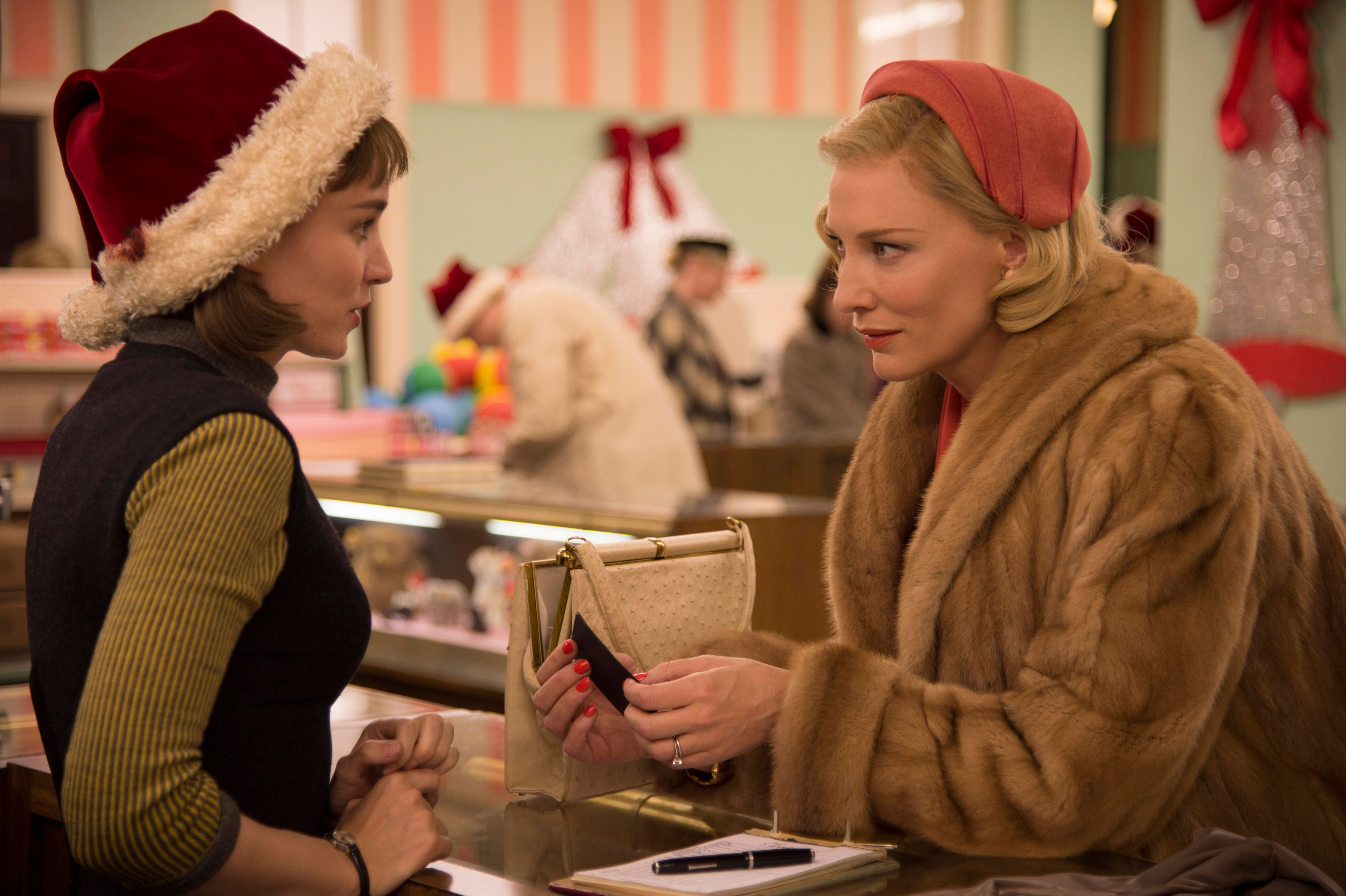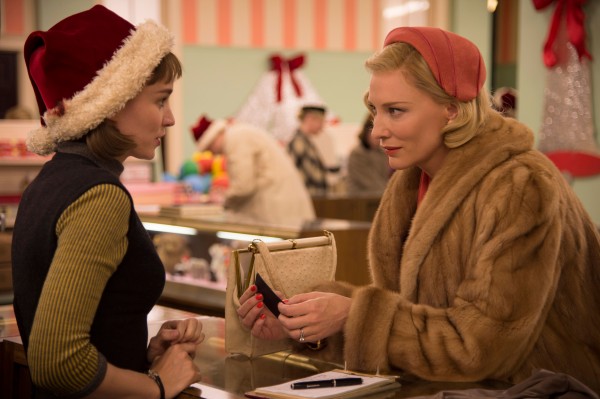
21 Nov Telluride Film Fest: “Carol,” A Review As Beautiful As Film Itself
“Carol.” But not the Xmas kind. (Although the holiday is in the rear view mirror – where objects are closer than they appear). “Carol,” the gorgeous film by director Todd Haynes, which screened during the Telluride Film Festival – and one of its stars, Rooney Mara, became one of the youngest tributees ever – is so lovingly reviewed by Huff Post entertainment editor Matthew Jacobs that we wanted to share. If you agree, please comment.
The final installment of the “Hunger Games” franchise is opening in some 4,000 theaters this weekend. The Seth Rogen Christmas comedy “The Night Before” bows in nearly 3,000, and “Secret in Their Eyes” — a thriller that finds Julia Roberts and Nicole Kidman sharing the screen for the first time — is slated for a reported 2,400 auditoriums. But I would turn my back on all of them in favor of a comparatively tiny film whose quality can run circles around the others.*
The movie I prioritized this week is “Carol,” the latest from gifted director Todd Haynes, who made two of the 2000s’ best releases with “Far From Heaven” and “I’m Not There.” Having first seen “Carol” back in September, four months after its euphoric Cannes Film Festival premiere, I cleared my schedule for a weeklong “Carol” blitz, and I’ve come away with an even fonder appreciation of the film. Technically, this blitz started last month during a quick conversation with Cate Blanchett, who was promoting “Truth,” the other movie that has her name on every Oscar prognosticator’s lips. Blanchett has the title role in “Carol,” playing an affluent 1950s married New Yorker who sparks an unlikely romance with Therese (Rooney Mara), a younger photographer working a temp job at a department store, where she sells Carol a train set for her daughter during the height of the holiday gift-buying scramble.
“Her sexuality had no name, and Carol didn’t fit into a particular subculture, so that visual niche expression of that was not an easy thing to find,” Blanchett said of her approach to the character — a sentiment she took a step further during Monday morning’s New York press conference at a hotel overlooking Central Park, where Blanchett called Carol’s repressed existence a “quiet hell.”
It’s in that hell that “Carol” finds resplendent grooves, both on- and offscreen. For a movie that tackles homosexuality during a time when it was still illegal nationwide, “Carol” is a decidedly unpolitical tale. Yet its source material — Patricia Highsmith’s semi-autobiographical 1952 novel The Price of Salt — quickly became a quiet pillar upon its publication, when there weren’t many stories that portrayed queer people in a positive light.
After Monday’s press conference, I sat down with two of the film’s producers, Christine Vachon and Elizabeth Karlsen, who walked me through its lengthy development process…



Sorry, the comment form is closed at this time.